Navigating the waters can be an invigorating adventure, but nothing kills your maritime joyride faster than a boat engine that’s overheating. Ignoring overheating can lead to serious, perhaps irreparable, damage. In the forthcoming article, “Why Is My Boat Engine Overheating?,” you’re going to uncover the most common reasons that boating enthusiasts often face this dilemma. You’ll also learn how to troubleshoot the issue, take preventive measures, and tips to ensure your trip doesn’t end up prematurely at the dock! Buckle up for this informative ride as you navigate the sea of knowledge on boat engine’s overheating issues.
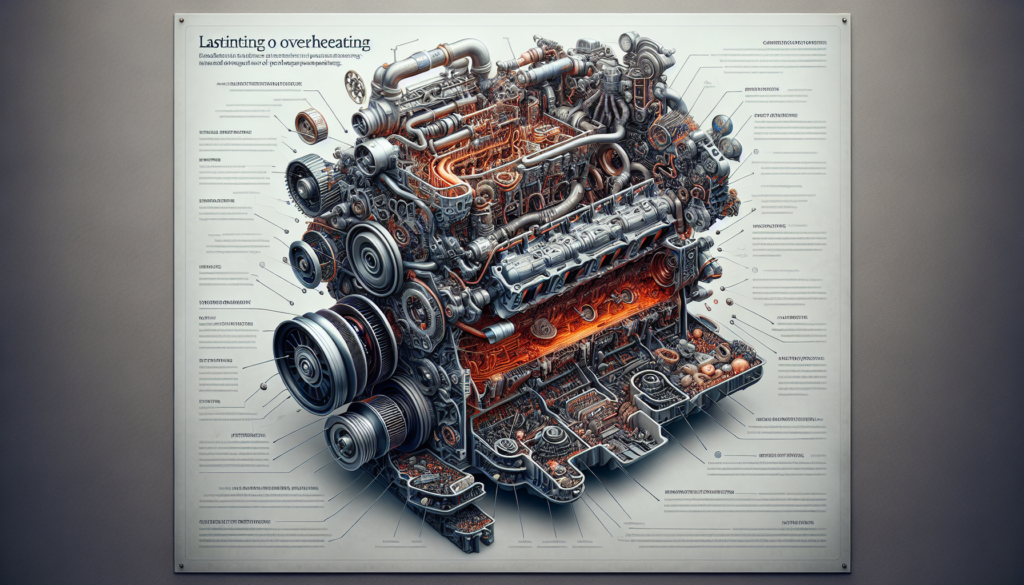
Understanding Engine Overheating
Engine overheating can occur to everyone, even the most seasoned boaters. Let’s break it down.
Defining engine overheating in boats
Engine overheating in boats, simply put, is when your boat’s engine becomes too hot. It may sound straightforward, but it’s a serious problem with can have damaging consequences. Internal combustion engines, like those in boats, produce a lot of heat and require an efficient cooling system to maintain their optimal running temperature.
The critical nature of proper engine cooling
The cooling system of your boat’s engine plays a critical role in its normal functioning. Proper cooling ensures the engine doesn’t go beyond its safe operating temperature and thus, can prevent potential damage due to overheating. An efficient cooling system protects your engine, increases its lifespan, and keeps it performing optimally.
Common Causes of Engine Overheating
Let’s dive into some common causes that can lead to your boat’s engine overheating.
Insufficient coolant in the system
One of the most frequent reasons for engine overheating is an insufficient amount of coolant. The coolant absorbs the heat produced by the engine and carries it away. If there’s not enough coolant, the engine can quickly become too hot.
Faulty water pump
A compromised water pump also contributes to engine overheating. The water pump circulates the coolant around the engine. A malfunctioning water pump can inefficiently circulate coolant, leading to an overheated engine.
Blocked cooling system
A blocked cooling system is another primary cause of engine overheating. If the passages within the cooling system are blocked, the coolant can’t efficiently pull away heat from the engine.
Faulty thermostat
The thermostat of the cooling system controls the amount of coolant that goes into the engine. If the thermostat is malfunctioning, it could impair the flow of coolant, causing the engine to overheat.
Engine oil issues
Last but not least, issues with the engine oil, such as poor quality or low oil levels, can lead to overheating problems. The engine oil minimises friction and dissipates heat, so inadequate or low quality oil may result in increased heat within the engine.
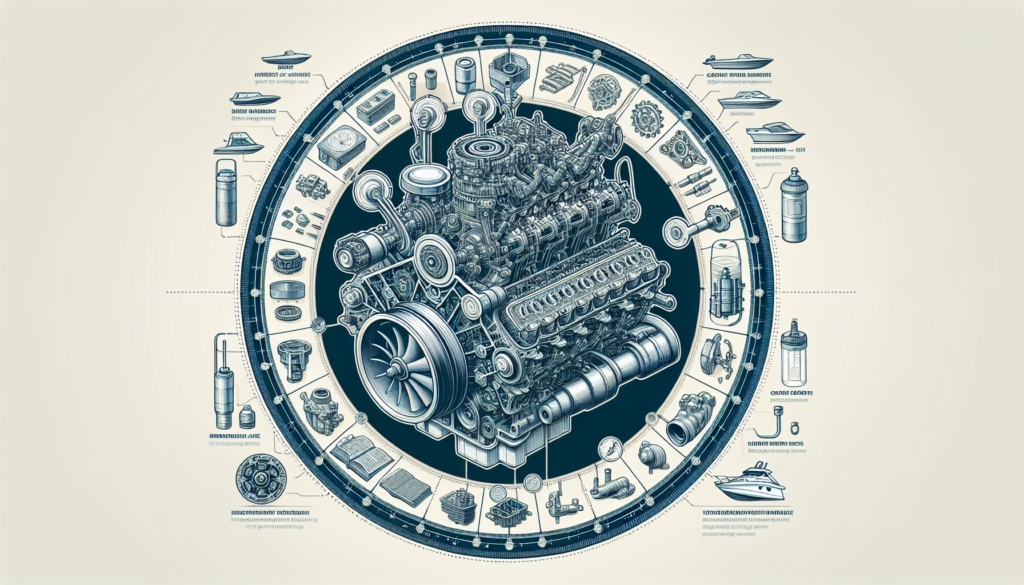
Identifying Signs of Overheating
Understanding the signs of an overheating engine can help you address the issue before it gets too severe.
How to use temperature gauges
A boat’s temperature gauge is a boon for detecting overheating. The temperature of the coolant increases if the engine is overheating, resulting in a higher gauge reading.
Physical signs of an overheating engine
The physical signs of an overheating engine include the smell of hot or burning engine oil, steam or smoke coming from the engine compartment, and perceivable engine noise.
Engine performance issues due to overheating
Performance issues, such as power loss and poor acceleration, can also indicate an overheating issue. An overheated engine will struggle to function efficiently.
Checking the Cooling System
Stay ahead of engine complications by having a good understanding of the cooling system and keeping it checked regularly.
Understanding the cooling system
A boat’s cooling system is made up of various components that include the water pump, radiator, thermostat, and coolant, amongst others. By circulating coolant around the engine block, it pulls away heat from the engine.
Assessing the condition of coolant
The coolant’s condition can reflect whether the cooling system is functioning properly. A low coolant level, or a coolant that’s excessively dirty, could mean that your cooling system needs attention.
Identifying blockages in the system
Checking the coolant flow can help detect blockages. A less than ideal coolant flow could indicate a blockage in the system that needs to be cleared to prevent overheating.
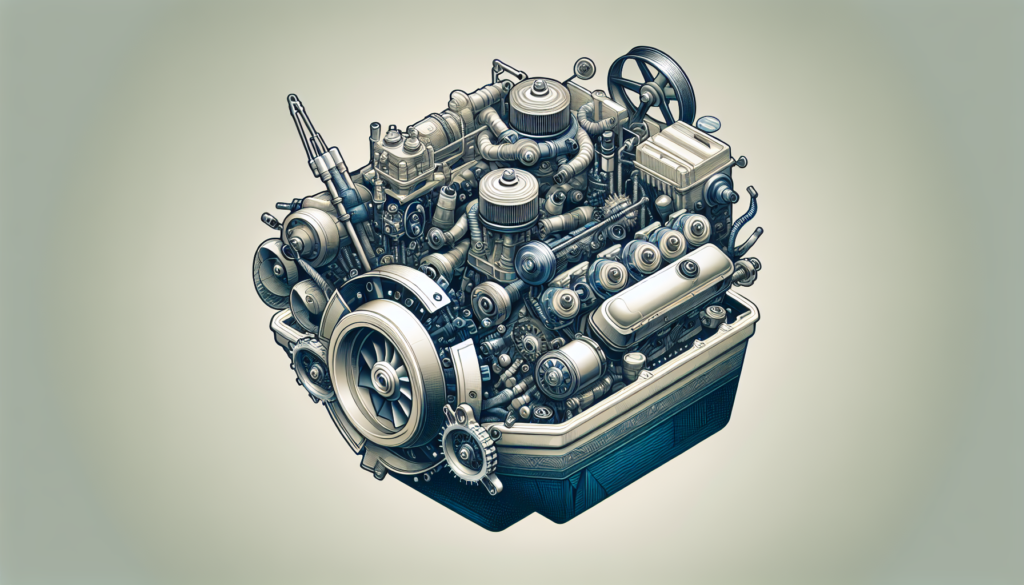
Investigating the Water Pump
Potential issues with the water pump are considerable when diagnosing overheating problems.
Function of the water pump
The water pump is the heart of the cooling system. By pumping the coolant throughout the engine, it pulls away excess heat and maintains the engine’s ideal operating temperature.
Possible issues with the water pump
If the water pump isn’t working efficiently, its inability to circulate coolant can cause the engine to overheat. A leaky or failing water pump are common issues.
Testing the water pump
A potential method for checking the water pump involves observing the coolant’s flow. A reduced flow could indicate a faulty water pump. Similarly, examining the pump itself for leaks or damage can provide insights into its condition.
Assessing the Thermostat
The thermostat plays a significant role in managing the engine’s temperature.
The role of the thermostat in engine cooling
The thermostat controls the amount of coolant reaching the engine. When the engine is cold, it restricts coolant flow until the engine warms up. As the engine reaches a defined temperature, it opens to let the coolant flow freely.
Detecting a faulty thermostat
A stuck thermostat, usually stuck closed, disallows coolant from reaching the engine, causing the engine to overheat. Observing the coolant’s flow can help determine the thermostat’s condition.
Replacing a defect thermostat
A faulty thermostat is not repairable and must be replaced. While it can be a DIY task for some, others may need to consult a professional.
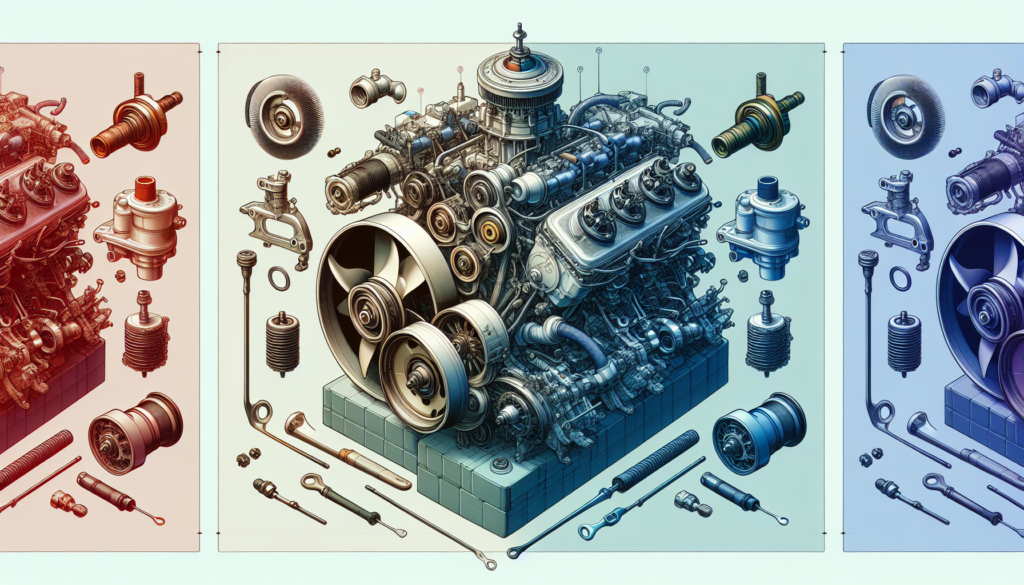
Dealing with Engine Oil Problems
Engine oil issues should not be overlooked during the troubleshooting process.
Engine oil and engine cooling
The engine oil lubricates the engine’s components, reducing friction and helping to dissipate heat. Good quality oil and adequate oil levels are essential for the engine’s smooth running and cool temperature.
Identifying poor quality or low oil levels
A low-level or poor quality engine oil can result in the engine overheating. Regularly checking your oil levels and maintaining its quality is crucial.
Fixing engine oil problems
Fixing engine oil problems boils down to changing the engine oil at regular intervals and ensuring the oil level doesn’t fall below the recommended threshold.
Inspecting Other Potential Issues
A complete inspection involves checking all possibilities, including issues with hoses, cylinder heads, and radiator fans.
Problems with hoses and belts
Hoses and belts in your cooling system can become worn out, leading to leaks, poor coolant flow, and ultimately, an overheating engine.
Issues with the cylinder head
The cylinder head houses crucial components of your engine. Overheating can cause the cylinder head to warp, leading to more serious engine damage.
Faulty radiator fan
A functioning radiator fan draws cool air across the radiator to help lower the coolant’s temperature. A faulty fan can lead to an overheating engine.
How to Prevent Engine Overheating
Preventing engine overheating is better than fixing damage caused by overheating. Here are some tips:
Routine inspection and maintenance
Regularly inspect and maintain your boat’s engine and its components to keep them in good condition and identify issues before they aggravate.
Proper engine operation
Avoid overloading your boat or running the engine at its maximum power for extended periods as it can lead to overheating.
Periodic replacement of parts
Some parts, like the thermostat, need to be replaced regularly. Implement a proactive replacement policy for such components.
Expert Assistance and When to Seek It
It’s essential to seek professional help when needed.
Recognising when professional help is needed
Sometimes, the causes of engine overheating aren’t obvious or their fixes may not be DIY-friendly. In such cases, it’s best to seek professional help.
Importance of professional engine servicing
Professional servicing ensures your boat’s engine gets a comprehensive maintenance and inspection that can uncover and fix issues you may not be equipped to handle.
Finding and choosing marine engine specialists
When faced with serious issues, finding and choosing an experienced marine engine specialist is key. Such experts can provide proficient diagnostics and solutions to help keep your boat’s engine running effectively, thereby preventing overheating.
In summary, remembering and utilising these tips can help you keep engine overheating at bay and enjoy your time out on the water!

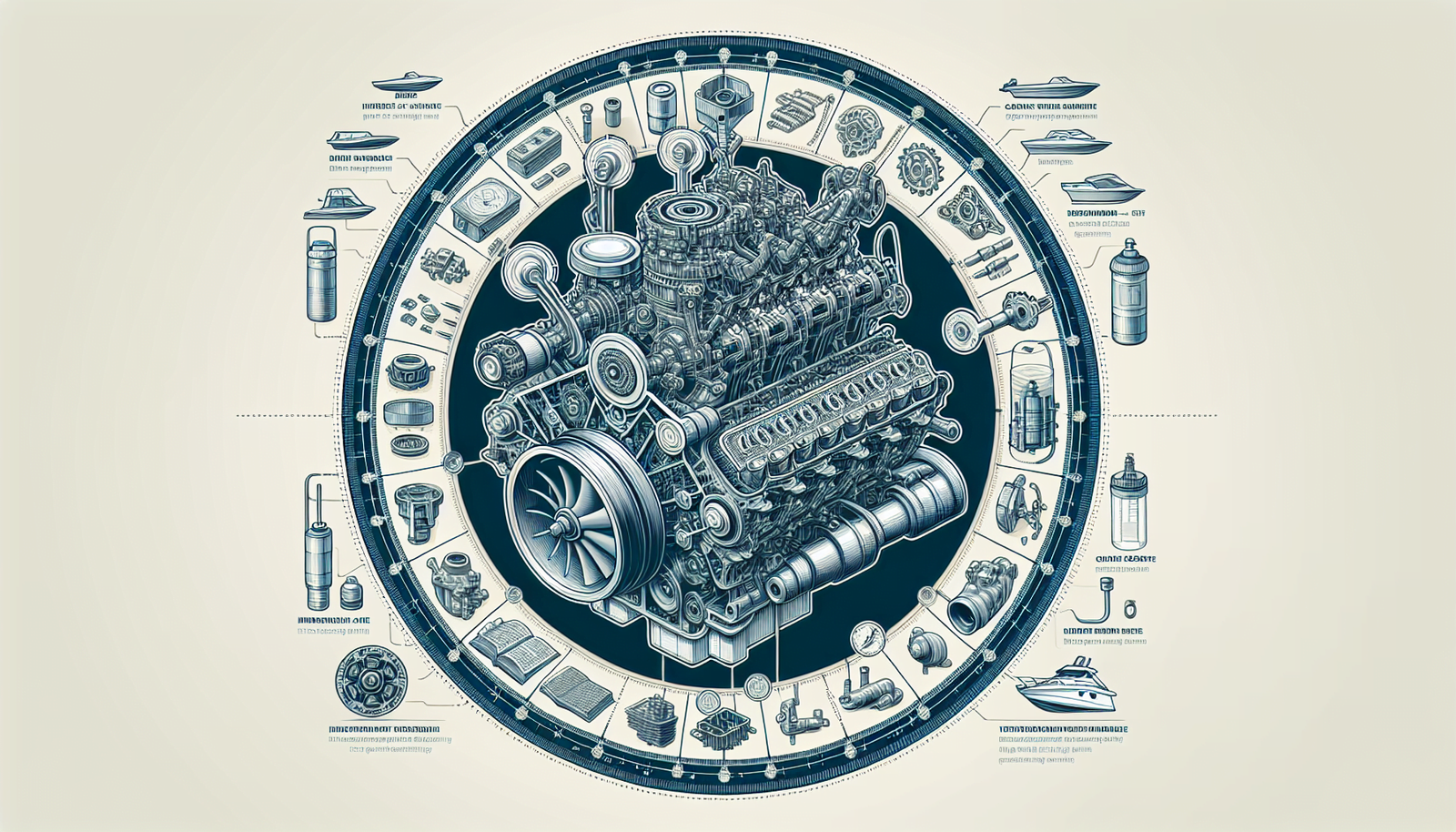
[…] Engine overheating problems are quite common in boats, especially during hot summers. Below are the primary reasons causing overheating and how you can identify them. […]
[…] There are several warning signs that your boat engine’s thermostat may be faulty. Your engine may overheat or run colder than usual, which can be identified by a sudden drop or increase in the temperature […]
[…] is a common yet potentially serious issue. Depending on the type of failure, it can either cause your boat engine to overheat by blocking the coolant flow or make it run too cool by allowing too much coolant to flow. Both scenarios can lead to […]